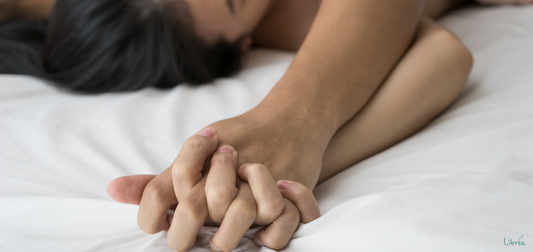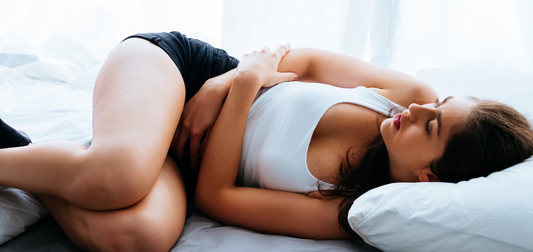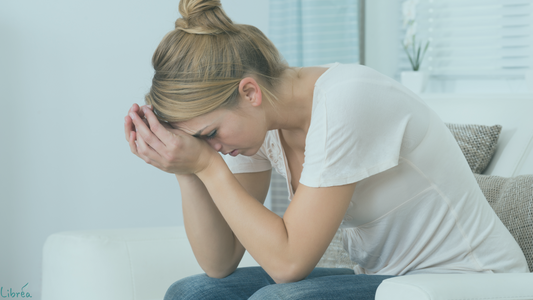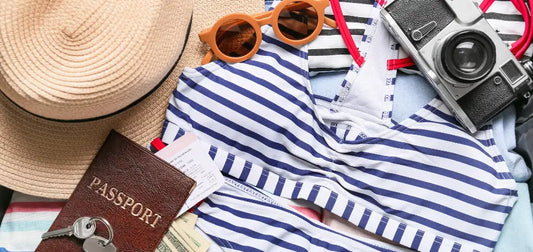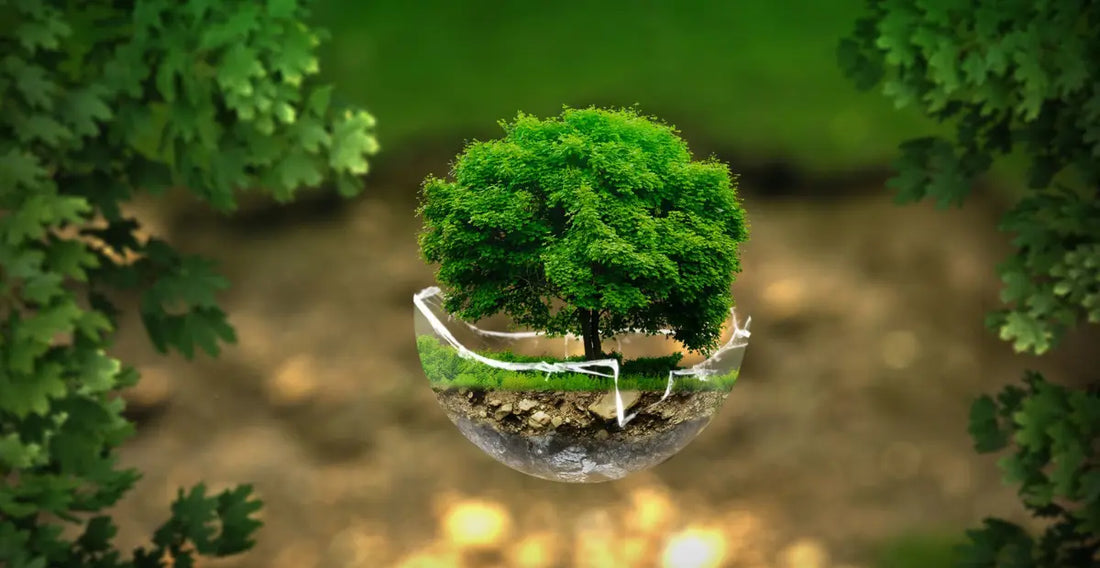
Eco-Friendly Daily Care Routine for modern Women
Share
12,000 menstrual pads are thrown away in a woman's life.
Each disposable pad can contain up to 3 plastic bags of equivalent value.
Do the math. 🌳
We know…Reducing the environmental impact of menstruation means shaking up a very intimate and age-old subject and it sounds like a real challenge, doesn't it? See it as YOUR chance to have a practical positive impact on your planet. 💚
As individuals, we can (should) take action (now) to reduce our environmental impact and create a more sustainable future. One way to do this is by adopting an eco-friendly daily care routine. In this post, we’ll look at some practical examples of what women can do to reduce waste and act sustainably in their daily routine.
Turn off the lights at home
Turning off the lights at home when you're not using them is an easy and effective way to reduce both your energy consumption and lower your electricity bills. Check around you, how many lights can you already switch off? 😆
DIY Detergent
Commercial detergents are often packaged in plastic and can contain harmful chemicals that are harmful to the environment. Making your detergent is a simple and effective way to reduce waste and exposure to toxic chemicals. You can make your detergent using natural ingredients like baking soda, washing soda, essential oil and soap flakes. There are many recipes available online, and making your detergent can save you money in the long run.
Use Refillable Containers
Another way to reduce waste is by using refillable containers. Instead of buying single-use containers, women can opt for refillable containers for products like shampoo, conditioner, and body wash. Many companies offer bulk products that can be refilled in-store, reducing the need for single-use packaging.

Look for Zero Waste stores
Have you been already to a zero waste shop? It is usually small and cosy shops where packaging are optimized, bulk spices and cereals, brands are well picked and people are happily engaged!
We advise you the one of Ana Maria, the ZERO WASTE shop https://magazinzerowaste.ro/, it is strada buzesti 20 in Bucharest. A super cool place to stop by and take inspiration from. Don’t forget to go there by bicicle 🙂
If you shop online, check eeco.ro, a new plateforme advising sustainable solutions for people and companies.
Think Twice Before Taking Your Car
While cars are convenient, they also have negative impacts on the environment and our health. Cars contribute to air pollution, greenhouse gas emissions, and noise pollution, all of which can harm our well-being. In addition, cars can be expensive to maintain, especially if they require frequent repairs or use a lot of fuel. By considering alternative modes of transportation, such as walking, cycling, or taking public transit, we can reduce our carbon footprint and improve our overall health. Before you reach for your car keys, we recommend you our friends from https://hellomotum.com/ . Their app is easy to use and helps understand our real impact and positive changes!
In Bucharest, there are currently limited bike lanes available, but there is hope for improvement in the future. As cycling gains popularity as a mode of transportation, more infrastructure is likely to be built to support it. Join us and advocate for the development of bike-friendly infrastructure and to support initiatives that promote cycling in Bucharest 🙂
Last but not least cycling 🚴♀️ , biking, running are perfect ways to re-discover the blooming nature and prepare your body for the summer 😉
OKKKK, if you still need to take your car: just stop your engine at the traffic lights! 🚦
Ditch the Disposables: Why Menstrual Underwear Is the Sustainable Choice
Menstrual products can create a lot of waste, and disposable pads and tampons are a significant contributor to environmental pollution. Women can switch to reusable menstrual products such as menstrual cups, reusable pads, or period panties. Menstrual cups are made of silicone or rubber, are long-lasting, and can be reused for several years. Reusable pads and period panties are washable and can be reused for a long time, reducing the need to buy disposable menstrual products. Have you already tried? We recommend you Libréa products here and if you have a question about their conception, fabrication or usage, ask their founders Laurence and Anouk by email: hi@librea.ro 🙂
Reuse your Makeup Removal Pads
Makeup removal pads are typically made of cotton and are considered single-use. They are not biodegradable and can take years to decompose. Reusable makeup removal pads are a more eco-friendly option. They can be washed and reused several times, reducing waste and saving money in the long run. At Libréa, we took advantage of our fabric scraps (waste from our manufacturing process) and created reusable make-up remover pads. They are machine washable and super soft, have you tried them?

Discover our make-up remover discs here
Conclusion
In conclusion, there are many ways that women can adopt an eco-friendly daily care routine. By making simple changes like switching to reusable menstrual products, using DIY detergent, or using refillable containers, women can reduce waste and create a more sustainable future. These changes not only benefit the environment but also save money in the long run while promoting a healthier lifestyle.
Help our community grow together and post in comment what are your practical tips to act eco-friendly!
Enjoy your sunny day,
#Libréagurl

